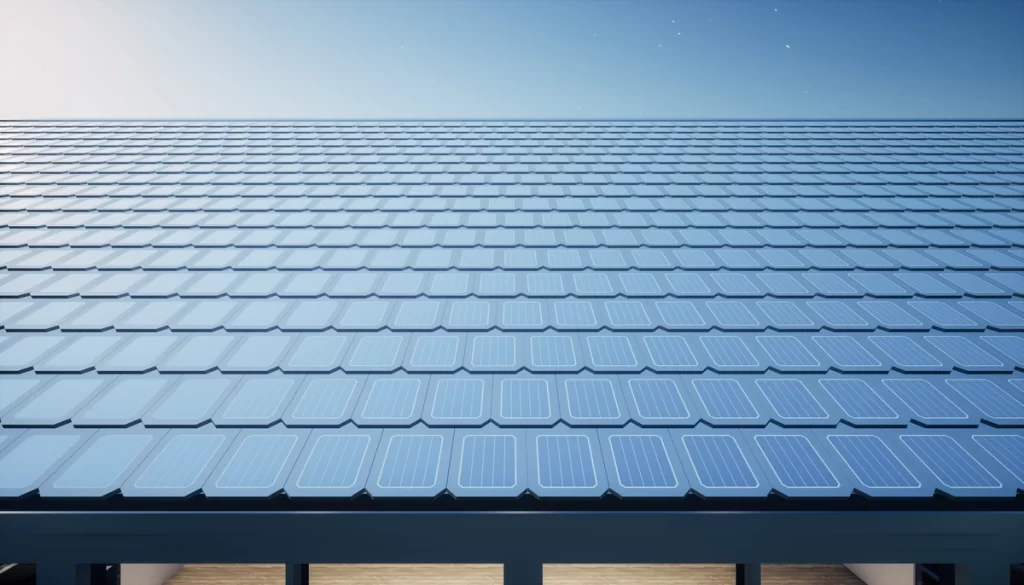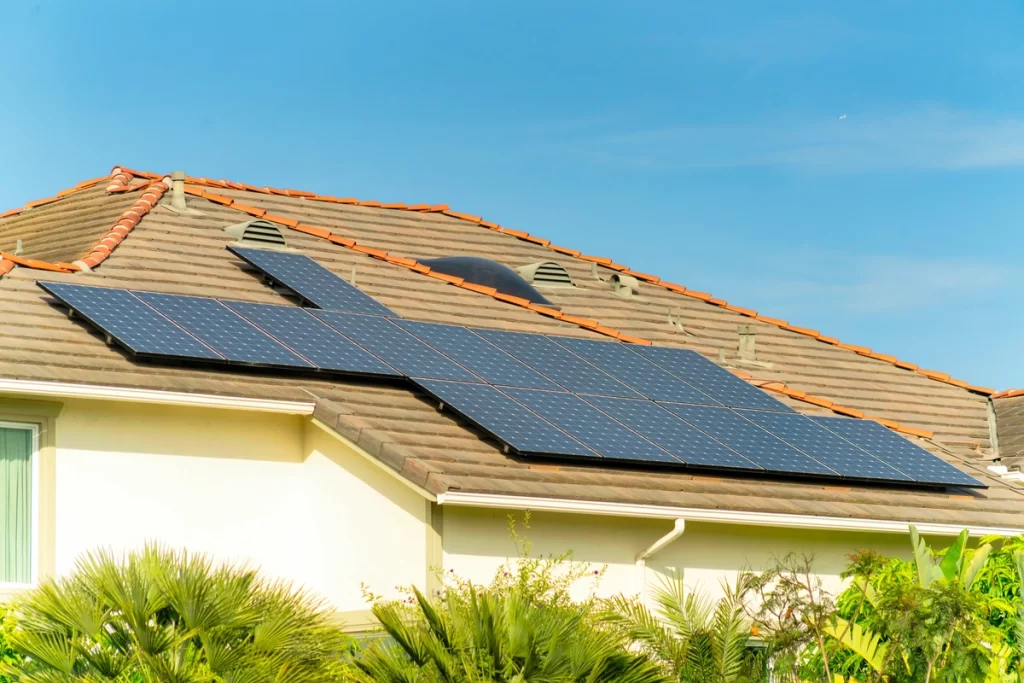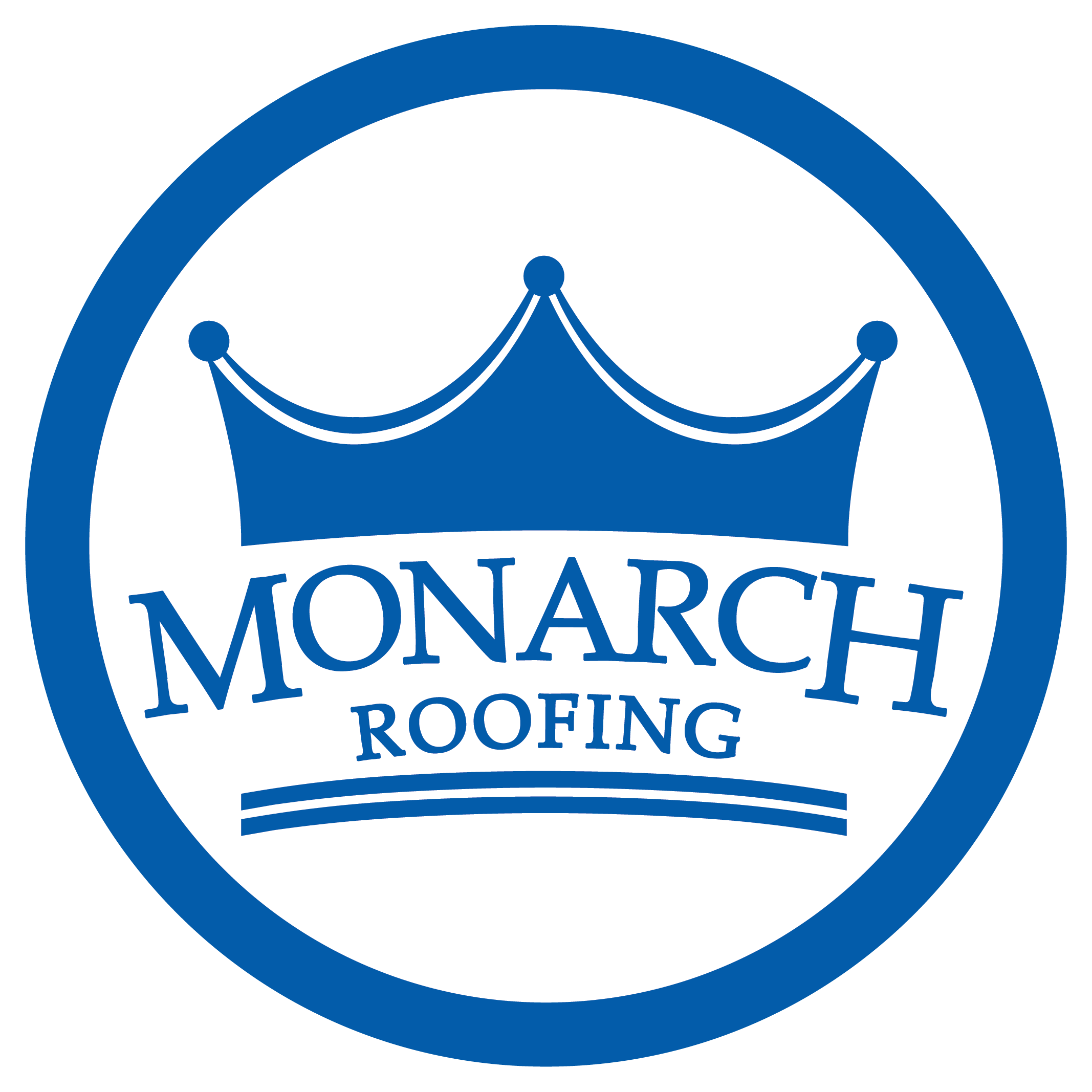In the modern era of environmental consciousness and sustainable living, the adoption of solar power has become increasingly prevalent. As homeowners seek to reduce their carbon footprint and alleviate their reliance on traditional energy sources, solar roofing emerges as a viable solution.
Within the realm of solar roofing options, two primary contenders vie for attention:
- Solar shingles
- Solar panels
Each option presents its own set of advantages and drawbacks, requiring a thorough examination to determine the optimal choice for homeowners looking to invest in solar energy.
Solar shingles vs solar panels: which one will be right for you?
Don’t hesitate to reach out to a reputable solar roofing expert, but for now, read along for our two cents!
Why Solar Roofing?
Before delving into the nuanced comparison between solar shingles and solar panels, it’s crucial to outline the compelling reasons behind the adoption of solar roofing:
- Economic Viability: Solar energy promises substantial reductions in energy costs over time, providing homeowners with long-term financial benefits and mitigating the impact of rising utility expenses.
- Environmental Sustainability: Solar power represents a clean and renewable energy source, devoid of harmful emissions or pollutants, thereby fostering a healthier and more sustainable planet.
- Property Value Enhancement: Homes equipped with solar roofing systems typically command higher resale values, as they appeal to environmentally-conscious buyers and offer attractive energy-saving features.
- Energy Independence: Solar roofing empowers homeowners to generate their own electricity, reducing dependency on external energy providers and shielding against fluctuations in energy prices.
Solar Shingles vs. Solar Panels: Comparative Analysis
Now, let’s delve into a comprehensive examination of the pros and cons associated with solar shingles and solar panels:
Solar Shingles

Solar shingles are designed to resemble traditional shingles while integrating photovoltaic cells to harness solar energy.
✅ Pros:
- Aesthetic Integration: Solar shingles seamlessly blend with the existing roof structure, preserving the overall architectural aesthetic of the home without the imposition of bulky panels.
- Structural Integration: Solar shingles, serving as replacements for conventional roofing materials, facilitate easier installation and may necessitate minimal structural modifications compared to solar panels.
- Adaptability: Solar shingles offer versatility in installation, accommodating curved or irregularly shaped roofs where conventional solar panels may pose logistical challenges.
❌ Cons:
- Reduced Efficiency: Solar shingles typically exhibit lower efficiency ratings in energy conversion compared to traditional solar panels, translating to diminished electricity generation per square foot.
- Limited Availability: As a relatively novel technology, solar shingles may face constraints in availability and higher price points compared to the more established solar panel market.
- Installation Costs: Despite potential simplifications in installation due to integration, solar shingles often entail higher overall costs relative to solar panels, stemming from their newer technology and specialized installation requirements.
Solar Panels

Solar panels are devices composed of photovoltaic cells that convert sunlight into electricity, typically installed on rooftops or in arrays to generate renewable energy.
✅ Pros:
- Enhanced Efficiency: Traditional solar panels boast higher efficiency ratings, translating to superior energy generation per square foot of surface area, thereby maximizing energy output.
- Cost-Effectiveness: Solar panels typically offer a more economical solution on a per-watt basis compared to solar shingles, rendering them a financially pragmatic option for homeowners seeking optimal return on investment.
- Proven Reliability: With decades of technological refinement and extensive testing, solar panels represent a time-tested and dependable solution for solar energy generation, instilling confidence in their performance and longevity.
❌ Cons:
- Aesthetic Considerations: Solar panels may pose aesthetic concerns for some homeowners, particularly those prioritizing a seamless visual appearance for their roofing structure.
- Installation Complexity: Solar panels necessitate the installation of mounting racks onto the roof, potentially requiring structural reinforcement and entailing greater labor intensity relative to the streamlined integration of solar shingles.
- Space Constraints: Solar panels typically occupy more space than solar shingles to achieve equivalent energy production levels, posing limitations for homes with constrained roof surface area.
Cost Implications of Solar Roofing Installation
The financial aspect of installing solar roofing represents a critical factor for homeowners evaluating the feasibility of solar energy adoption. While the actual costs can vary widely depending on factors such as system size, roofing material, and installation complexity, it’s essential to provide a comprehensive overview of cost considerations:
The U.S. Department of Energy estimates the average cost range for installing a solar panel system to be between $10,000 and $30,000, contingent upon various factors such as system size, geographic location, and available incentives. In contrast, solar shingle systems typically command higher price tags, ranging from $14,000 to $36,000 for an average-sized residential installation.
It’s imperative for homeowners to adopt a holistic perspective when assessing the affordability of solar roofing options, factoring in both upfront installation costs and long-term savings derived from reduced energy bills and potential incentives.
Longevity and Durability of Solar Roofing Systems
The longevity and durability of solar roofing systems serve as pivotal considerations for homeowners aiming to maximize the longevity of their investment. While both solar shingles and solar panels offer extended lifespans with proper maintenance, it’s essential to delineate the key factors influencing their durability:
Manufacturers typically provide warranties ranging from 20 to 25 years for solar shingles and 25 to 30 years for solar panels, indicative of the robustness and reliability inherent in these technologies. However, the actual lifespan of a solar roofing system is contingent upon various external factors, including:
- Weather Conditions: Exposure to harsh weather elements such as extreme temperatures, hail, and wind can impact the structural integrity and performance of solar roofing systems over time.
- Maintenance Practices: Adherence to regular maintenance protocols, including cleaning, inspection, and timely repairs, is essential for preserving the efficiency and longevity of solar shingles and panels alike.
- Quality of Installation: The quality of installation plays a pivotal role in determining the longevity and performance of solar roofing systems, underscoring the importance of engaging reputable and experienced installers.
5 Effective Maintenance Strategies for Solar Roofing Systems
To ensure the optimal performance and longevity of solar roofing systems, homeowners should implement a proactive maintenance regimen encompassing the following essential practices:
1) Routine Cleaning:
Regularly remove dirt, debris, and other obstructions from the surface of solar shingles or panels to maintain optimal sunlight absorption and energy generation efficiency.
2) Comprehensive Inspection:
Conduct periodic inspections of the solar roofing system to identify signs of damage, such as cracks, loose connections, or water infiltration, and address them promptly to prevent exacerbation of issues.
3) Foliage Management:
Trim overhanging branches and foliage that cast shadows onto the solar roofing system, as shading can impede energy production and compromise overall performance.
4) Performance Monitoring:
Monitor the energy output and efficiency of the solar roofing system over time to detect deviations or abnormalities indicative of potential maintenance requirements or system malfunctions.
5) Professional Maintenance Services:
Schedule periodic maintenance inspections with certified solar technicians or installers to conduct comprehensive assessments, perform specialized maintenance tasks, and ensure adherence to manufacturer guidelines and warranty requirements.
By adhering to these proactive maintenance strategies, homeowners can safeguard the integrity and performance of their solar roofing systems, thereby optimizing energy generation efficiency and prolonging the lifespan of their investment.
Making an Informed Decision
The choice between solar shingles and solar panels represents a pivotal decision for homeowners seeking to harness the benefits of solar energy. While each option offers distinct advantages and drawbacks, ranging from aesthetic considerations and efficiency to cost implications and durability, the optimal choice ultimately hinges on aligning with individual preferences, budgetary constraints, and specific requirements.
If you are considering solar roof shingles or solar panels for your home, Monarch Roofing can help!
Contact us today to learn how we can install your solar roof.





